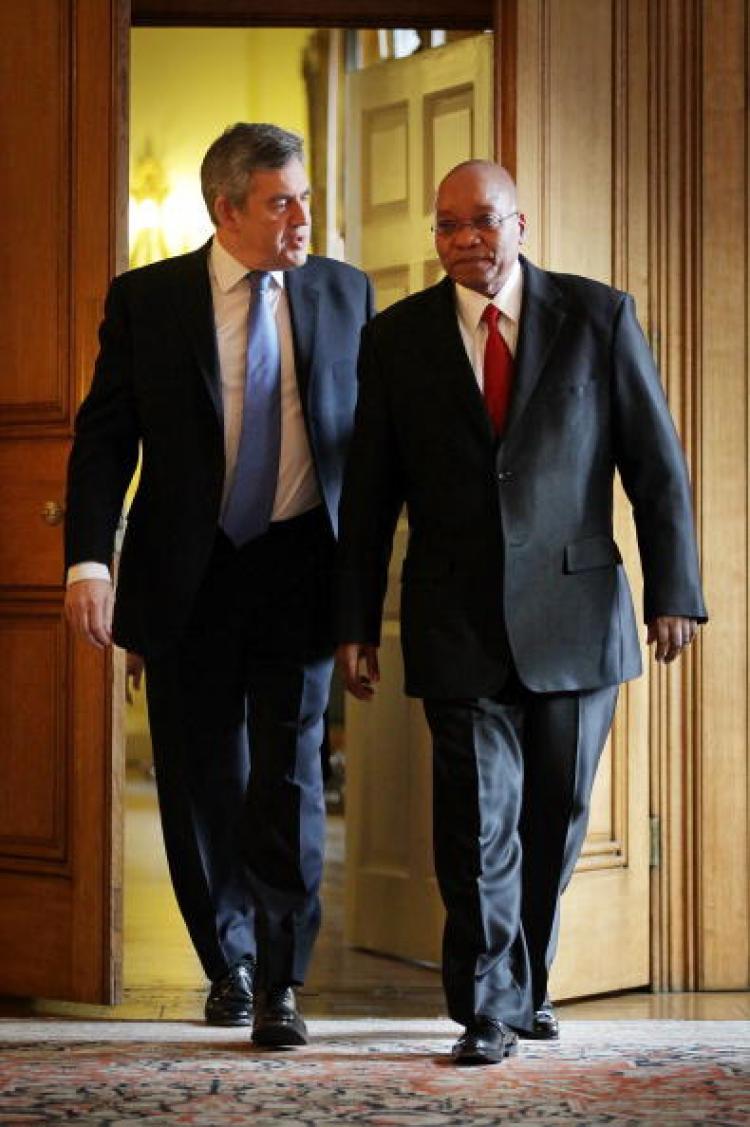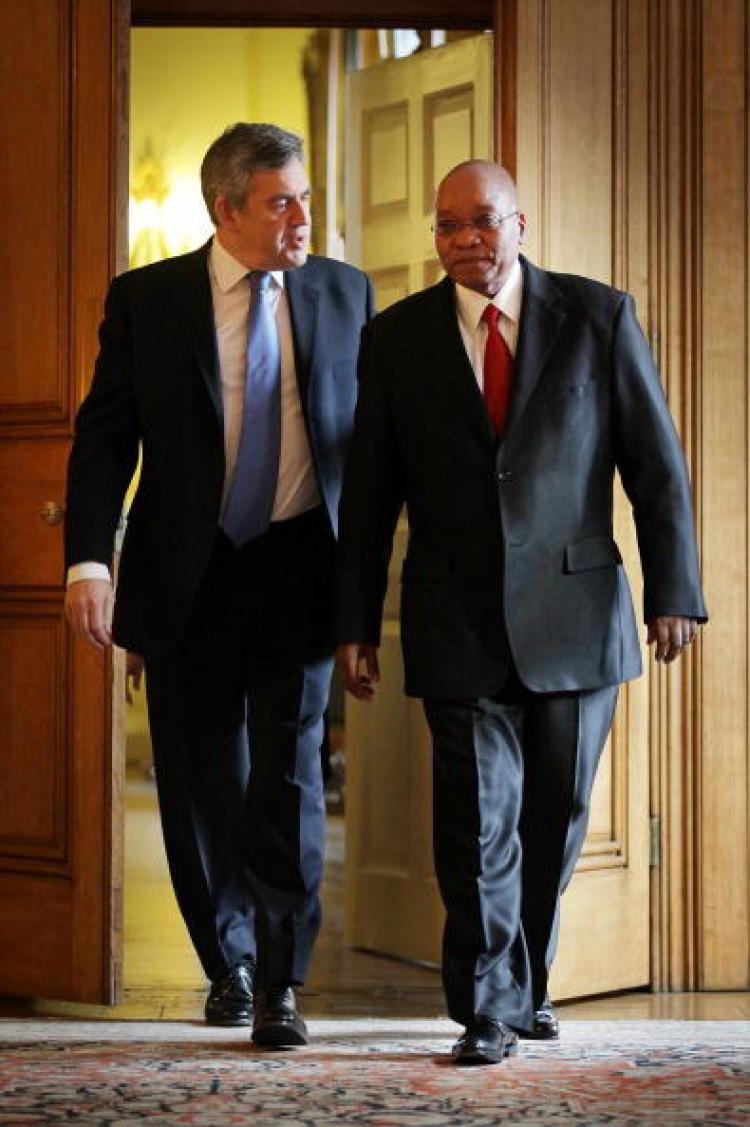U.K. Prime Minister Gordon Brown said he’s against lifting European Union sanctions against Zimbabwe until progress is made in key areas such as human rights. Brown made his comments during a state visit from South African President Jacob Zuma Thursday.
Zuma had pleaded for easing the sanctions to help South Africa’s neighbor “move forward,” saying the sanctions are making conditions worse there. But according to Brown, the sanctions are against specific individuals and companies and do not target ordinary people, only those guilty of violence in the past.
“We have reduced sanctions on some companies, we are ready to respond to other progress as it is made but I do emphasize the importance of the work of these (Zimbabwe) commissions in emphasizing human rights, the freedom of the press, and the reforms of governance,” Brown said at a press conference.
On Feb. 15, the E.U. lifted sanctions against six individuals and nine companies, but the majority were kept due to lack of progress. The United States imposed sanction against 250 Zimbabwean individuals and 17 companies in 2002. There are, however, no general trade or investment sanctions against the country.
Currently, Zimbabwean President Mugabe and senior members of his Zanu Party (PF) are banned from traveling to the EU and the United States since they are deemed responsible for, among other people, the violence that accompanied Mugabe’s aggressive land reform policies.
“We have always related better with the British through the Conservatives than Labour [Parties]. ... Conservatives are bold, Blair and Brown run away when they see me, but not these fools, they know how to relate to others,” Mugabe was reported as saying by the Guardian, in a reaction to Brown’s comments.
Mugabe has been in the president’s seat since Zimbabwe’s independence from Britain in 1980 and his party has won every election since then, albeit with widespread suspicion of election fraud. Mugabe has also been widely criticized for economic mismanagement and a poor human rights records during his rule.
Under international and national pressure, Mugabe agreed in 2008 to form a unity government with Morgan Tsvangira’s opposition party Movement for Democratic Change. But the two parties disagreed on key issues and have reached an impasse. An opposition party ally is currently on trial for alleged terrorism and treason.
Mugabe says the West is trying to ruin the Zimbabwean economy through its sanctions.
Zuma had pleaded for easing the sanctions to help South Africa’s neighbor “move forward,” saying the sanctions are making conditions worse there. But according to Brown, the sanctions are against specific individuals and companies and do not target ordinary people, only those guilty of violence in the past.
“We have reduced sanctions on some companies, we are ready to respond to other progress as it is made but I do emphasize the importance of the work of these (Zimbabwe) commissions in emphasizing human rights, the freedom of the press, and the reforms of governance,” Brown said at a press conference.
On Feb. 15, the E.U. lifted sanctions against six individuals and nine companies, but the majority were kept due to lack of progress. The United States imposed sanction against 250 Zimbabwean individuals and 17 companies in 2002. There are, however, no general trade or investment sanctions against the country.
Currently, Zimbabwean President Mugabe and senior members of his Zanu Party (PF) are banned from traveling to the EU and the United States since they are deemed responsible for, among other people, the violence that accompanied Mugabe’s aggressive land reform policies.
“We have always related better with the British through the Conservatives than Labour [Parties]. ... Conservatives are bold, Blair and Brown run away when they see me, but not these fools, they know how to relate to others,” Mugabe was reported as saying by the Guardian, in a reaction to Brown’s comments.
Mugabe has been in the president’s seat since Zimbabwe’s independence from Britain in 1980 and his party has won every election since then, albeit with widespread suspicion of election fraud. Mugabe has also been widely criticized for economic mismanagement and a poor human rights records during his rule.
Under international and national pressure, Mugabe agreed in 2008 to form a unity government with Morgan Tsvangira’s opposition party Movement for Democratic Change. But the two parties disagreed on key issues and have reached an impasse. An opposition party ally is currently on trial for alleged terrorism and treason.
Mugabe says the West is trying to ruin the Zimbabwean economy through its sanctions.





